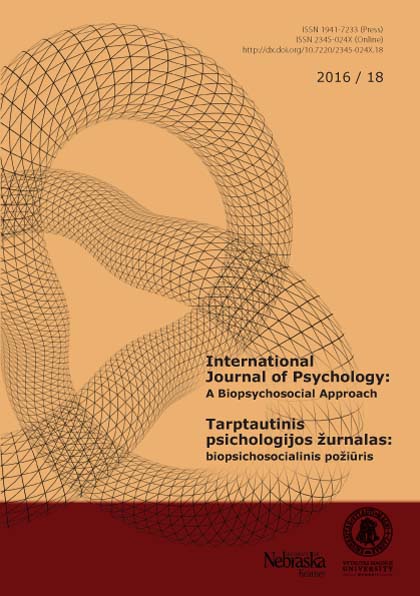COMPONENTS OF EXISTENTIAL CRISIS: A THEORETICAL ANALYSIS
COMPONENTS OF EXISTENTIAL CRISIS: A THEORETICAL ANALYSIS
Author(s): Joana Butėnaitė, Jolanta Sondaitė, Antanas MockusSubject(s): Social Sciences, Psychology, Individual Psychology, Cognitive Psychology, Behaviorism
Published by: Vytauto Didžiojo Universitetas
Keywords: Existential realities; Limited situation; Emotional pain;
Summary/Abstract: Research problem: It is important for psychologists and psychotherapists working with people experiencing different difficulties to understand their experiences of existential crisis. A perspective of existential crisis is presented through special experiences connected with finality and infinite. The attempt is made to present a holistic understanding of existential crisis, differentiating the main components and aspects of existential crisis. After such explanations, it is possible to take a comprehensive look at theories and empirical studies of existential crisis. Purpose: To differentiate and analyze the components and aspects of an existential crisis. Method: Theoretical analysis, which includes the comparison and synthesis of scientific literature and the interpretation of data. Results and conclusion: To differentiate the following components of an existential crisis: the emotional, cognitive and behavioral. The emotional component includes these aspects: emotional pain, despair, helplessness, disturbed sense of integrity, emotional vulnerability, guilt, fear, anxiety and loneliness. The cognitive component includes these aspects: loss of meaning and goals, realization of own end, loss of personal values, decision-making. The behavioral component is characterized by these aspects: restraining actions, rituals, relationship loss, health problems, addictions, anti-social behavior and the need for therapy.
Journal: Tarptautinis psichologijos žurnalas: biopsichosocialinis požiūris
- Issue Year: 2016
- Issue No: 18
- Page Range: 9-27
- Page Count: 19
- Language: English

